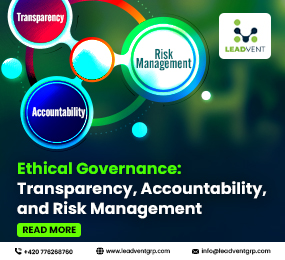Africa is one of the continents most affected by climate change, with its communities experiencing some of the most extreme environmental changes, including rising temperatures, erratic rainfall patterns, droughts, and floods. These disruptions have significant impacts on food security, livelihoods, and the overall well-being of millions of people. As climate change continues to intensify, vulnerable regions in Africa are increasingly adopting Environmental, Social, and Governance (ESG) practices to build resilience and ensure a more sustainable and equitable future. In this post, we will analyze how these regions are leveraging ESG strategies to tackle the challenges posed by climate change.
The Vulnerability of Africa’s Most Affected Regions
Certain regions in Africa are more vulnerable to the impacts of climate change due to their geographic location, reliance on rain-fed agriculture, and limited infrastructure. Some of the most affected regions include:
- The Sahel: Stretching across the northern part of sub-Saharan Africa, the Sahel is experiencing increasingly frequent droughts, desertification, and food insecurity. This semi-arid region is heavily reliant on agriculture, making it particularly susceptible to climate shocks.
- Eastern and Southern Africa: Countries such as Kenya, Ethiopia, Mozambique, and Zambia face erratic rainfall patterns and the increased frequency of floods and droughts. These regions rely on agriculture for income, and disruptions caused by climate change threaten the livelihoods of millions.
- Southern Africa’s Coastal Areas: The coastal regions of Southern Africa are vulnerable to rising sea levels, more intense storms, and flooding. These areas depend on fisheries and agriculture, both of which are impacted by changing climate patterns.
Adopting ESG Practices for Climate Resilience
Environmental, Social, and Governance (ESG) principles offer an integrated framework for addressing climate change while promoting sustainable development and social equity. The adoption of ESG practices in these vulnerable regions can help mitigate climate risks, enhance resilience, and support long-term sustainability. Here are some key ESG practices that are making a difference:
- Environmental Sustainability: Protecting Resources and Enhancing Adaptation
- Social Resilience: Empowering Communities and Promoting Inclusivity
- Governance: Building Institutions for Climate Adaptation
a. Climate-Smart Agriculture (CSA): In the Sahel and parts of East Africa, farmers are adopting CSA techniques that promote sustainable farming practices and improve climate resilience. These techniques include crop diversification, agroforestry, soil conservation, and the use of drought-resistant crops. By improving land management, farmers can better withstand the impacts of changing weather patterns, increase food production, and reduce soil erosion.
b. Water Management: Water scarcity is a significant challenge in many vulnerable regions, particularly in the Sahel. Effective water management strategies, such as rainwater harvesting, efficient irrigation systems, and the use of water-efficient crop varieties, are key to ensuring that farmers have access to water even during dry spells. Additionally, sustainable water governance models are being implemented to ensure equitable distribution of resources.
c. Renewable Energy Adoption: In Southern Africa and the Sahel, off-grid renewable energy solutions, such as solar power, are being adopted to increase access to electricity in rural communities. These renewable energy systems help power irrigation pumps, reduce reliance on biomass for cooking, and provide a cleaner, more reliable energy source, helping communities adapt to climate impacts.
a. Capacity Building and Education: Educating local populations, especially farmers, on climate change adaptation strategies and sustainable practices is critical. Many organizations are offering training on the use of climate-smart technologies, water conservation techniques, and alternative livelihoods, thus helping communities become more resilient. In vulnerable regions, women are often at the forefront of these efforts, driving change and taking on leadership roles.
b. Livelihood Diversification: In many vulnerable regions, reliance on a single source of income, such as agriculture or fishing, exposes communities to climate risks. ESG practices encourage the diversification of livelihoods by promoting income-generating activities such as ecotourism, renewable energy projects, and small-scale manufacturing. These activities reduce dependency on climate-sensitive sectors and provide economic stability.
c. Gender Equality and Social Inclusion: A critical component of ESG practices is ensuring that climate resilience efforts are inclusive. In many African regions, women and marginalized groups are disproportionately affected by climate change. ESG initiatives that focus on gender equality and the inclusion of vulnerable groups in decision-making processes can help create more equitable solutions for all.
a. Strengthening Local Governance and Policy Frameworks: Effective governance is essential for the successful implementation of ESG practices. In many vulnerable African regions, local governments are working with national and international organizations to create policies that promote climate adaptation, sustainable land use, and disaster risk reduction. This includes creating early warning systems for droughts and floods, establishing policies that support renewable energy adoption, and incentivizing climate-smart agricultural practices.
b. Community-Led Adaptation and Participation: A core tenet of ESG governance is community participation. In Africa’s most vulnerable regions, local communities are taking an active role in developing and implementing climate adaptation strategies. Community-led projects such as reforestation efforts, land restoration, and the building of climate-resilient infrastructure are helping to reduce vulnerability and ensure that adaptation measures are tailored to the specific needs of the region.
c. Transparency and Accountability: Governance practices under the ESG framework emphasize transparency, accountability, and the responsible use of resources. Monitoring the progress of climate resilience initiatives and ensuring that funds are allocated effectively is crucial to maintaining long-term impact. This can involve the use of data, open reporting, and stakeholder engagement to ensure that interventions are responsive to local needs.
Key Takeaways: ESG as a Path to Long-Term Resilience
Regions in Africa most vulnerable to climate change are already adopting ESG practices to build resilience. Through climate-smart agriculture, water management, and renewable energy adoption, these communities are adapting to changing climate conditions. By focusing on social inclusion, capacity building, and gender equality, these regions are ensuring that no one is left behind in the fight for a climate-resilient future.
Moreover, the strengthening of local governance and the promotion of transparency and accountability are essential for maintaining long-term resilience. The successful implementation of ESG practices across Africa’s vulnerable regions offers valuable lessons for other parts of the continent, demonstrating that collaboration, innovation, and sustainable practices are key to overcoming climate change challenges.
Looking Ahead: Join the ESG and Climate Africa Summit
To explore more about how ESG practices are transforming Africa’s most vulnerable regions and shaping a sustainable future, join us at the ESG and Climate Africa Summit in May 2025. This event will bring together leaders, innovators, and policymakers to discuss actionable strategies for climate resilience and sustainable development in Africa. Register today to be part of the conversation!
Secure your spot now and be part of Africa’s sustainability transformation!
For full event details, visit the ESG and Climate Africa page
Interested in speaking?
If you want to participate in the conference as a speaker, please kindly contact Mark Perry at [email protected]
Don’t miss this opportunity to improve your knowledge and showcase your products directly to your target audience & leaders from innovative and forward-thinking companies in the solar energy sector.
Plan on sending a team. For maximal benefit, we highly recommend that you send a team of 3+ to attend the event. That’s why we offer group booking discounts—enquire now to find out more—available for a LIMITED TIME ONLY.
Are you ready to be a part of the event?
Save 50% if you book by 31st March.
Limited sponsorship opportunities are available; contact me today at Martin Smith, [email protected] | +420 776 268 760.
For more information on delegate registration and group participation, contact us at [email protected].
Leadvent Group—Industry-Leading Events for Business Leaders!
















